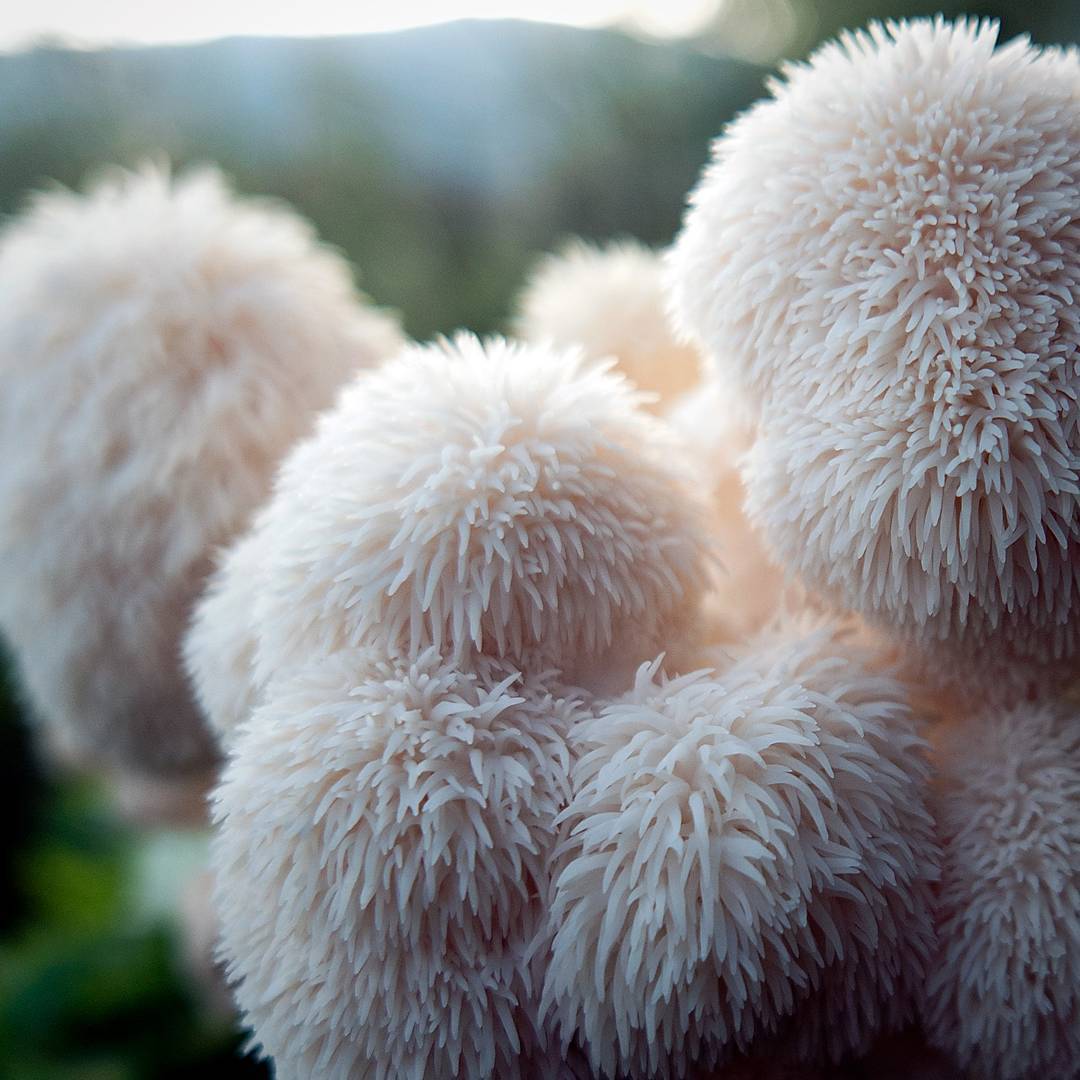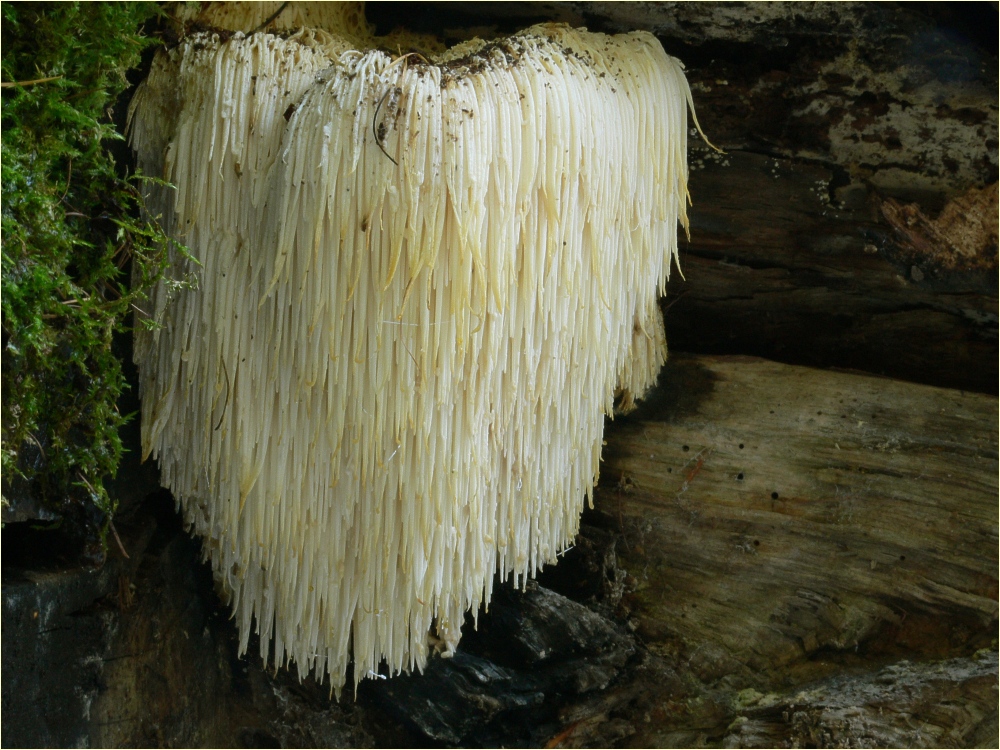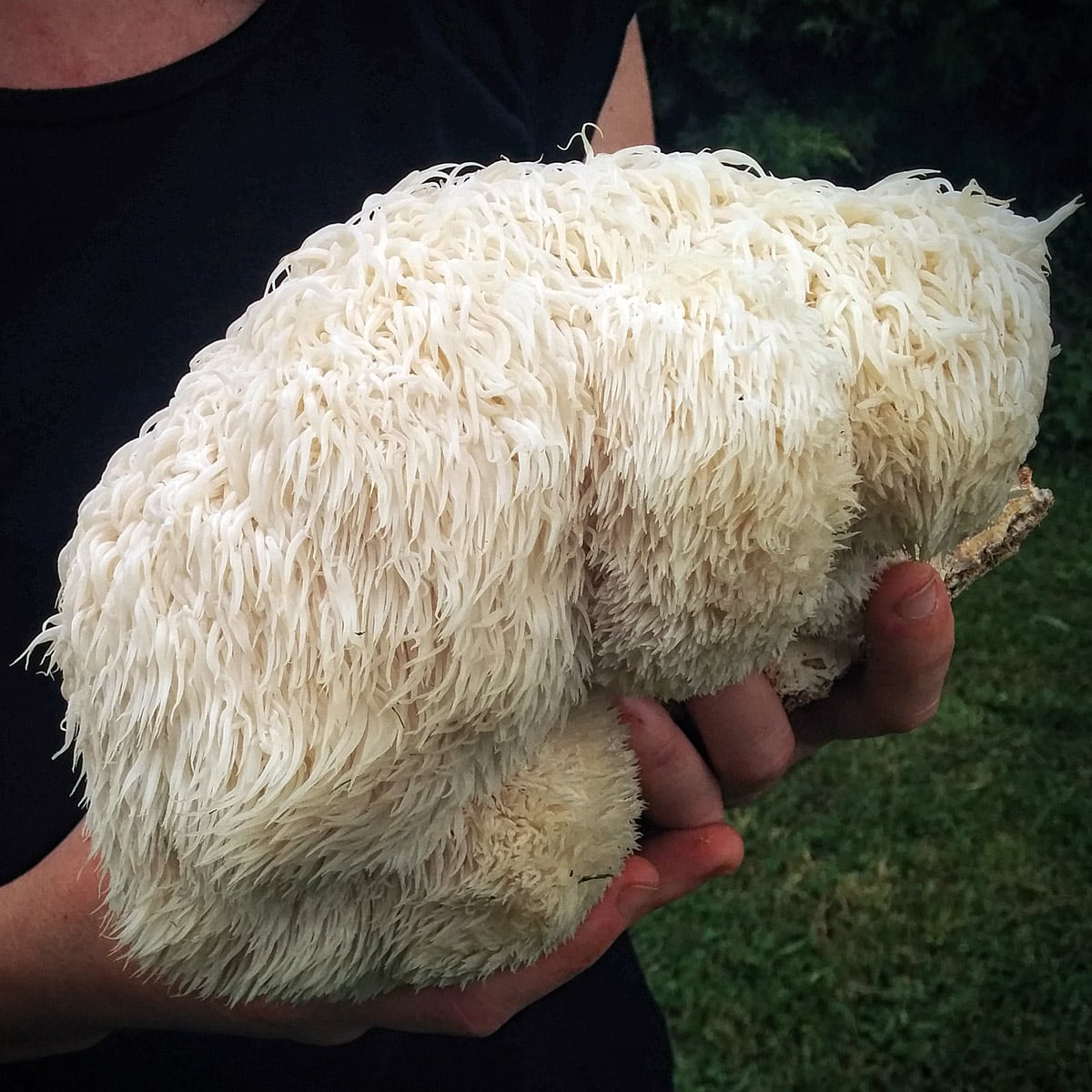Lion's mane mushroom: Researchers are investigating its potential for strengthening memory, protecting the brain, and other effects on the nervous system.

Lion's mane is an edible and medicinal mushroom that has been used in traditional Asian medicine for centuries. In recent years, it has gained scientific attention for molecules isolated from its fruiting body and mycelium—including erinacines, hericenones, and isoindolinones—which, in cellular and animal models, stimulate the production of neurotrophic factors and promote the growth of axons and dendrites .
This biological activity is the basis on which researchers maintain that the fungus could promote brain plasticity and memory.

Culinary consumption of the mushroom is common in Asia. Photo: SOCIAL NETWORKS
Preclinical experiments show recurrent effects: increased markers such as NGF (nerve growth factor), greater neurite growth and improvements in memory tests in rodents supplemented with extracts or enriched compounds of the fungus.
Research highlights these findings as evidence in principle—that the substances have relevant biological activity in experimental systems —but they do not prove that the same effect occurs in people.
What do human trials say? Human clinical studies are still scarce and have small sample sizes . Some controlled trials have found isolated improvements in processing speed or subjective reductions in stress after single doses or weeks of supplementation; others have shown no clear effects on overall cognitive function.

The fungus could promote brain plasticity. Photo: SOCIAL NETWORKS
Overall, the current clinical evidence is heterogeneous and does not allow us to conclude that lion's mane is effective in preventing or treating cognitive decline in the general population . Larger, well-designed trials with long-term follow-up are needed.
Responsible compounds Chemical studies have identified families of compounds with neurotrophic activity: erinacines (mainly in the mycelium), hericenones (in the fruiting body), and isohericerins. In the laboratory, some of these compounds activate pathways related to nerve growth factor (NGF) synthesis , reduce oxidative stress, and influence cell survival signals; in animal models, these effects have been associated with improvements in memory and behavior.

Current clinical evidence is heterogeneous and does not allow us to conclude that lion's mane is effective. Photo: SOCIAL NETWORKS
However, the concentration of these compounds varies depending on the cultivation method, the part of the fungus used, and the type of extract, making it difficult to compare results and establish standardized doses.
Safety and possible adverse effects Culinary consumption of the mushroom is common in Asia, and in general, medical experts describe lion's mane as well-tolerated. Reviews and monographs report few adverse events in short-term studies. Despite this, specialists recommend caution and consulting a doctor before starting supplements , especially if you are taking medications or have chronic conditions.
Doses used in research There is no established dose. Clinical trials have used varying ranges, from 500 mg capsules three times a day to trials with 1.8–3 g in single or daily doses, and other studies use standardized extracts or erinacine-enriched mycelium. This variability means that results are not directly comparable, and commercial products differ greatly in concentration and quality. In short, there is still no scientific consensus on an effective and safe dose to improve memory in humans.
MORE NEWS: DANNA VALERIA FIGUEROA RUEDA
DIGITAL REACH EDITORIAL
eltiempo

%3Aformat(jpeg)%3Aquality(99)%3Awatermark(f.elconfidencial.com%2Ffile%2Fbae%2Feea%2Ffde%2Fbaeeeafde1b3229287b0c008f7602058.png%2C0%2C275%2C1)%2Ff.elconfidencial.com%2Foriginal%2Fbd9%2Ff62%2F9ed%2Fbd9f629ed572ff84813d5a12aadd4153.jpeg&w=1280&q=100)
%3Aformat(jpg)%3Aquality(99)%3Awatermark(f.elconfidencial.com%2Ffile%2Fbae%2Feea%2Ffde%2Fbaeeeafde1b3229287b0c008f7602058.png%2C0%2C275%2C1)%2Ff.elconfidencial.com%2Foriginal%2F195%2F2fb%2Fb69%2F1952fbb692280df29b8dd7a9848f615f.jpg&w=1280&q=100)
%3Aformat(png)%3Aquality(99)%3Awatermark(f.elconfidencial.com%2Ffile%2Fa73%2Ff85%2Fd17%2Fa73f85d17f0b2300eddff0d114d4ab10.png%2C0%2C275%2C1)%2Ff.elconfidencial.com%2Foriginal%2F0b9%2Fc2c%2Febd%2F0b9c2cebdc9461ab374194064f8ae5e3.png&w=1280&q=100)
%3Aformat(png)%3Aquality(99)%3Awatermark(f.elconfidencial.com%2Ffile%2Fa73%2Ff85%2Fd17%2Fa73f85d17f0b2300eddff0d114d4ab10.png%2C0%2C275%2C1)%2Ff.elconfidencial.com%2Foriginal%2F561%2F041%2Fcb5%2F561041cb510840067fe25f26da0ae0c0.png&w=1280&q=100)
%3Aformat(jpg)%3Aquality(99)%3Awatermark(f.elconfidencial.com%2Ffile%2Fbae%2Feea%2Ffde%2Fbaeeeafde1b3229287b0c008f7602058.png%2C0%2C275%2C1)%2Ff.elconfidencial.com%2Foriginal%2F2c2%2F9e3%2F5dc%2F2c29e35dc972f37c18b54d7b214f4b20.jpg&w=1280&q=100)